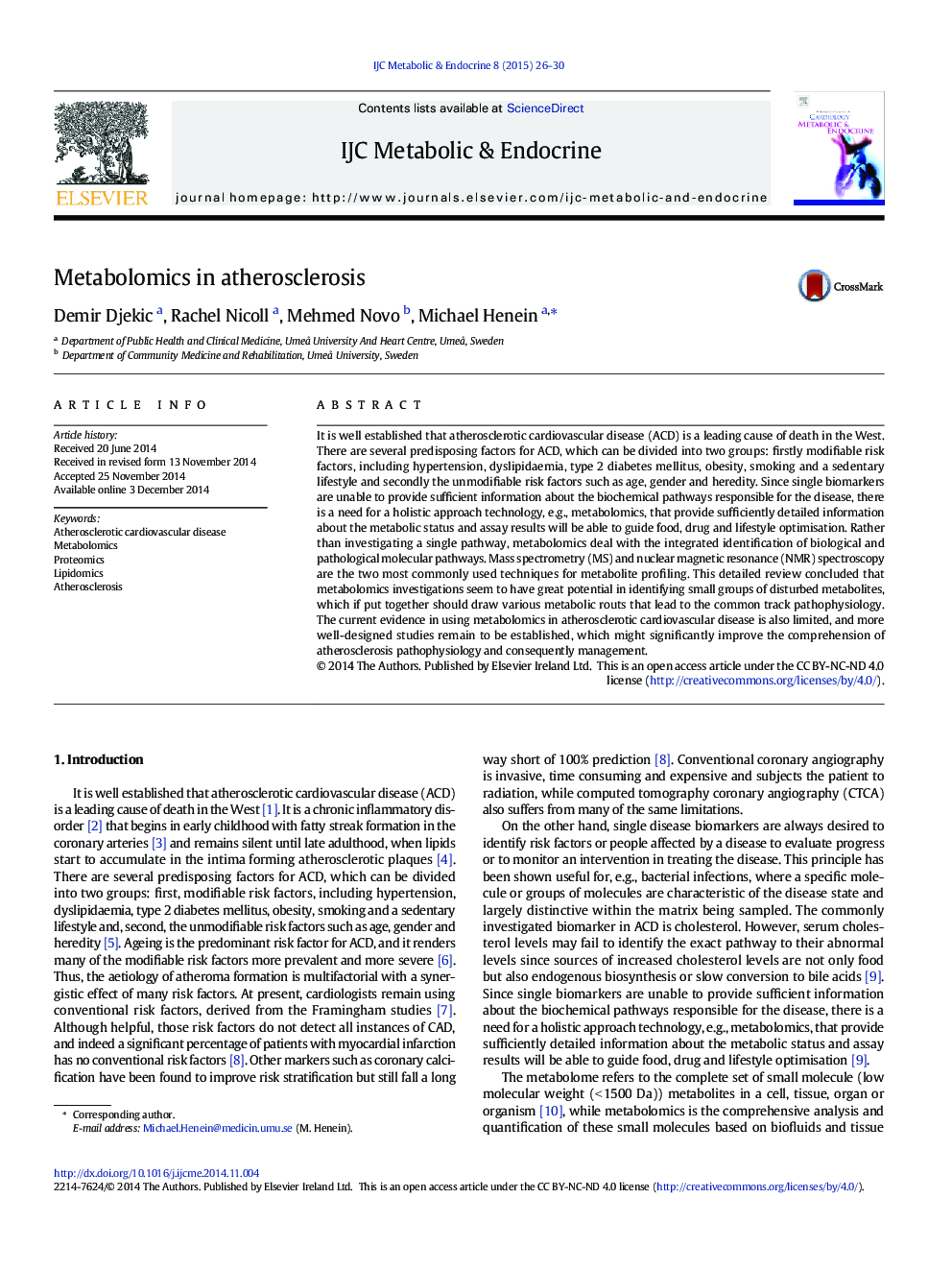| Article ID | Journal | Published Year | Pages | File Type |
|---|---|---|---|---|
| 2927228 | IJC Metabolic & Endocrine | 2015 | 5 Pages |
It is well established that atherosclerotic cardiovascular disease (ACD) is a leading cause of death in the West. There are several predisposing factors for ACD, which can be divided into two groups: firstly modifiable risk factors, including hypertension, dyslipidaemia, type 2 diabetes mellitus, obesity, smoking and a sedentary lifestyle and secondly the unmodifiable risk factors such as age, gender and heredity. Since single biomarkers are unable to provide sufficient information about the biochemical pathways responsible for the disease, there is a need for a holistic approach technology, e.g., metabolomics, that provide sufficiently detailed information about the metabolic status and assay results will be able to guide food, drug and lifestyle optimisation. Rather than investigating a single pathway, metabolomics deal with the integrated identification of biological and pathological molecular pathways. Mass spectrometry (MS) and nuclear magnetic resonance (NMR) spectroscopy are the two most commonly used techniques for metabolite profiling. This detailed review concluded that metabolomics investigations seem to have great potential in identifying small groups of disturbed metabolites, which if put together should draw various metabolic routs that lead to the common track pathophysiology. The current evidence in using metabolomics in atherosclerotic cardiovascular disease is also limited, and more well-designed studies remain to be established, which might significantly improve the comprehension of atherosclerosis pathophysiology and consequently management.
